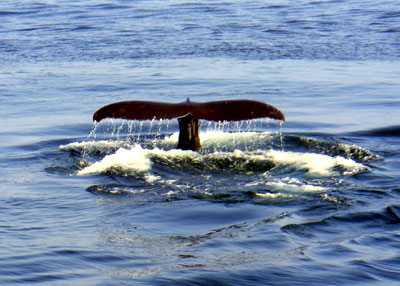All Nonfiction
- Bullying
- Books
- Academic
- Author Interviews
- Celebrity interviews
- College Articles
- College Essays
- Educator of the Year
- Heroes
- Interviews
- Memoir
- Personal Experience
- Sports
- Travel & Culture
All Opinions
- Bullying
- Current Events / Politics
- Discrimination
- Drugs / Alcohol / Smoking
- Entertainment / Celebrities
- Environment
- Love / Relationships
- Movies / Music / TV
- Pop Culture / Trends
- School / College
- Social Issues / Civics
- Spirituality / Religion
- Sports / Hobbies
All Hot Topics
- Bullying
- Community Service
- Environment
- Health
- Letters to the Editor
- Pride & Prejudice
- What Matters
- Back
Summer Guide
- Program Links
- Program Reviews
- Back
College Guide
- College Links
- College Reviews
- College Essays
- College Articles
- Back
Send Cetaceans Back to Where They Belong
There’s no question about it: cetaceans are intelligent creatures. From the language they use to communicate to one another to their need of belonging and companionship, it’s clear that these animals are so much more than what they are advertised for. Zoological parks like SeaWorld and Six Flags profit off of the confinement of these animals, depriving them from their natural habitat and needs. Cetacean specialists say that cetaceans within their care actually live healthier lives, as humans constantly tend to the animals, but, behind the curtain, it’s evident that the “easy” life these cetaceans live in the spotlight is truly damaging and unnatural.
For this reason, cetaceans should be sent back to the ocean. Because these performance animals are so accustomed to being in human care, there should be transitional programs that help them adjust to the wild. In fact, it would be most beneficial if zoological/marine parks change their mission to strictly being education/transition centers for cetaceans. There are so many more healthy ways for the public to be aware and to learn about these species without confining them to certain grounds.
If one heard that humans were being forced to live a life that is unnatural to them, the reaction would be chaotic. So, why is this so different for cetaceans? Not only are they physically larger and stronger than us, but they are also intelligent and self-aware. These factors are usually pushed to the side because humans don’t fully understand their way of life, but it must be recognized that just because they don’t experience life like humans, it doesn’t mean they don’t experience life at all. Such ways of living can make one curious, but that doesn’t mean we have to confine them to understand them. If anything, confining them will only cause them to live unhealthily, in which the data humans collect from these aquatic subjects will be inaccurate to how they truly live.
It is only natural for cetaceans to live in the ocean. If these marine parks were replaced by educational transition programs, the public can still stay informed while still benefiting the cetaceans in the healthiest ways possible. A good example of this is the whale, Keiko, and his journey back to the ocean from being confined to humans for a majority of his life. A strategy highlighted during his transition were “ocean walks,” in which humans would monitor his whereabouts in the ocean and assist him when needed for a period of time, until Keiko felt comfortable enough to swim on his own. Through this, he was able to find a new family to swim with and adjusted back to the ocean comfortably. Additionally, it’s proven that whales serve the ocean and the species that live among it. Whale excretions create organic carbon for smaller organisms, supporting the ocean’s natural food chain. All cetaceans are social animals, so limiting communication and freedom creates an unnatural environment for them.
There are some drawbacks to such transitions that cannot be ignored. For one, though the dream seems doable, it is also complicated and expensive. The equipment needed to deconstruct marine parks and to transition these animals back to the ocean requires more money spent than earned. It is also not guaranteed that cetaceans will transition properly back into the ocean; it is most likely that they will die, as they are unaware of how to behave in the wild. This suggests that they won’t find a family to return to as well. Furthermore, there are instances where breeding in captivity benefits the species as a whole, as it can prevent extinction. Confinement can also allow humans to advance our research.
Big changes like sending confined animals to the wild don’t happen overnight. But this doesn’t mean that it can’t happen at all. Going forward, I think it is best if marine parks recognize their faults and strengths and use it to benefit the health of their performance animals, not to benefit their bank accounts. Turning their parks into transition facilities would allow the cetaceans to roam in the ocean while still allowing humans to study their ways of life.

Similar Articles
JOIN THE DISCUSSION
This article has 0 comments.

I am 17 year old girl who is passionate about singing and songwriting. Ever since adopting my dog Dexter 5 years ago, I had grown heavily sensitive towards animal rights. I believe animals should have more rights.